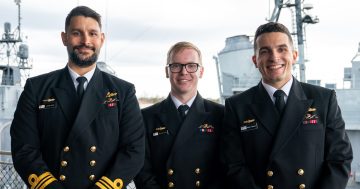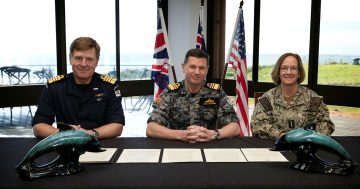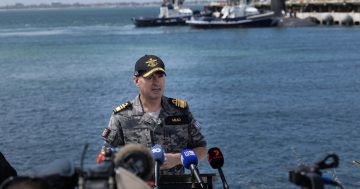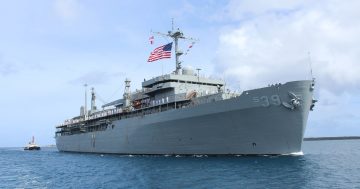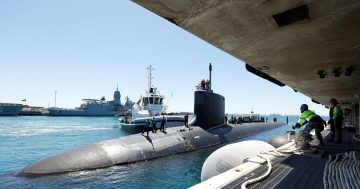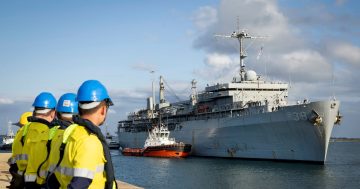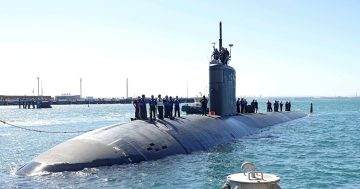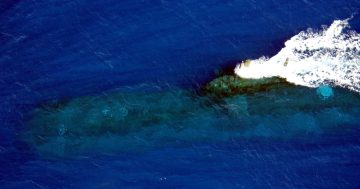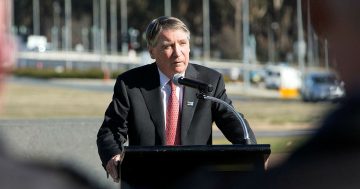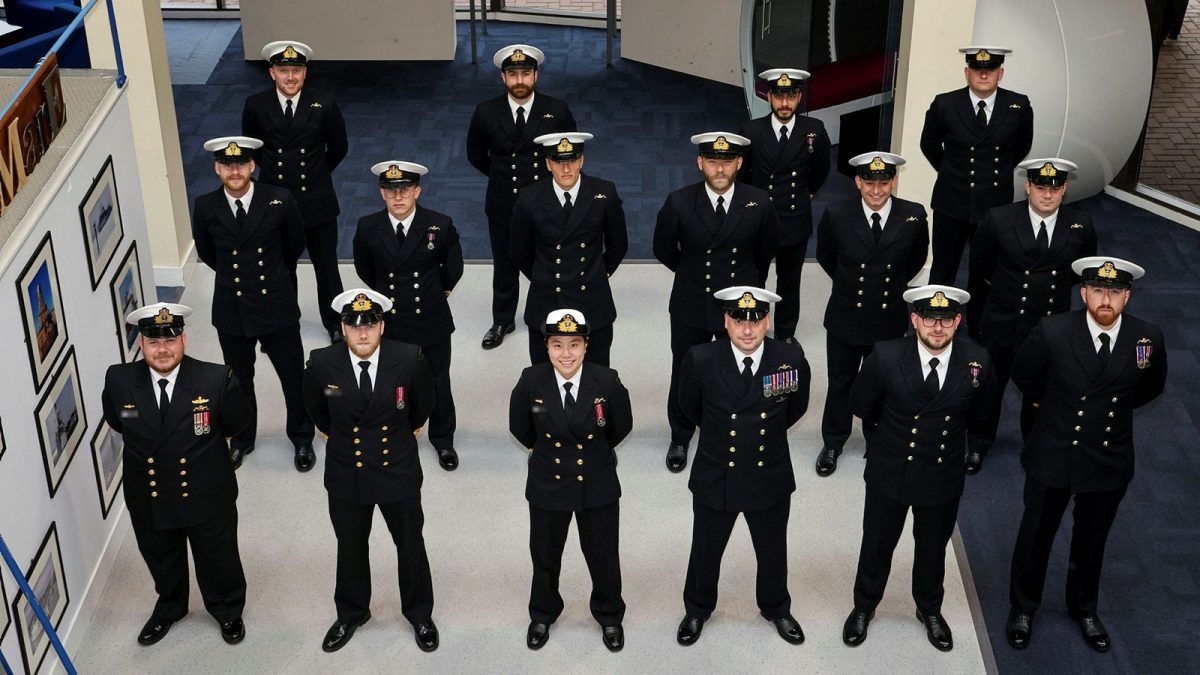
Graduates of the UK’s Nuclear Reactor Course, including the three RAN officers in the front row from left. Photos: UK MoD via ADF.
Three Royal Australian Navy engineers have graduated from the UK Royal Navy’s elite Nuclear Operator Course and Engineering Administration Course and the follow-on Nuclear Reactor Course.
The milestone follows the graduation of three RAN personnel from the US Navy’s equivalent courses late last year and early this year.
The three officers – a Lieutenant Commander and two Lieutenants – all graduated with distinction, with Lieutenant ‘‘Isabella’’ being recognised as the dux of the course. Unlike the US Navy course graduates, Defence has not published the UK graduate officers’ surnames.
The graduation marks the end of their shore-based requirements as part of the Royal Navy’s nuclear submarine training program. The three will now begin practical training and will deploy aboard Royal Navy Astute-class nuclear-powered submarines based at Faslane in Scotland.
Chief of Navy Vice Admiral Mark Hammond attended the graduation alongside the Director-General of the Australian Submarine Agency Vice Admiral Jonathan Mead, and he congratulated the three graduates on the significant achievement of their critical training.
“It was a pleasure to be at HMS Sultan for the first graduation ceremony for our people partaking in the world-class Royal Navy training program,” Vice Admiral Hammond said.
“I am incredibly proud of all three of our remarkable officers for their achievements and especially acknowledge Lieutenant Isabella, who was awarded dux of the graduating class.
“This demonstrates the exceptional skill set and knowledge of our people undertaking this unique training from the Royal Navy – a long-standing partner and friend to the Royal Australian Navy.
“The graduation marks another significant step forward for the Royal Australian Navy’s ability to operate, maintain and support Australia’s future nuclear-powered submarine capability.”
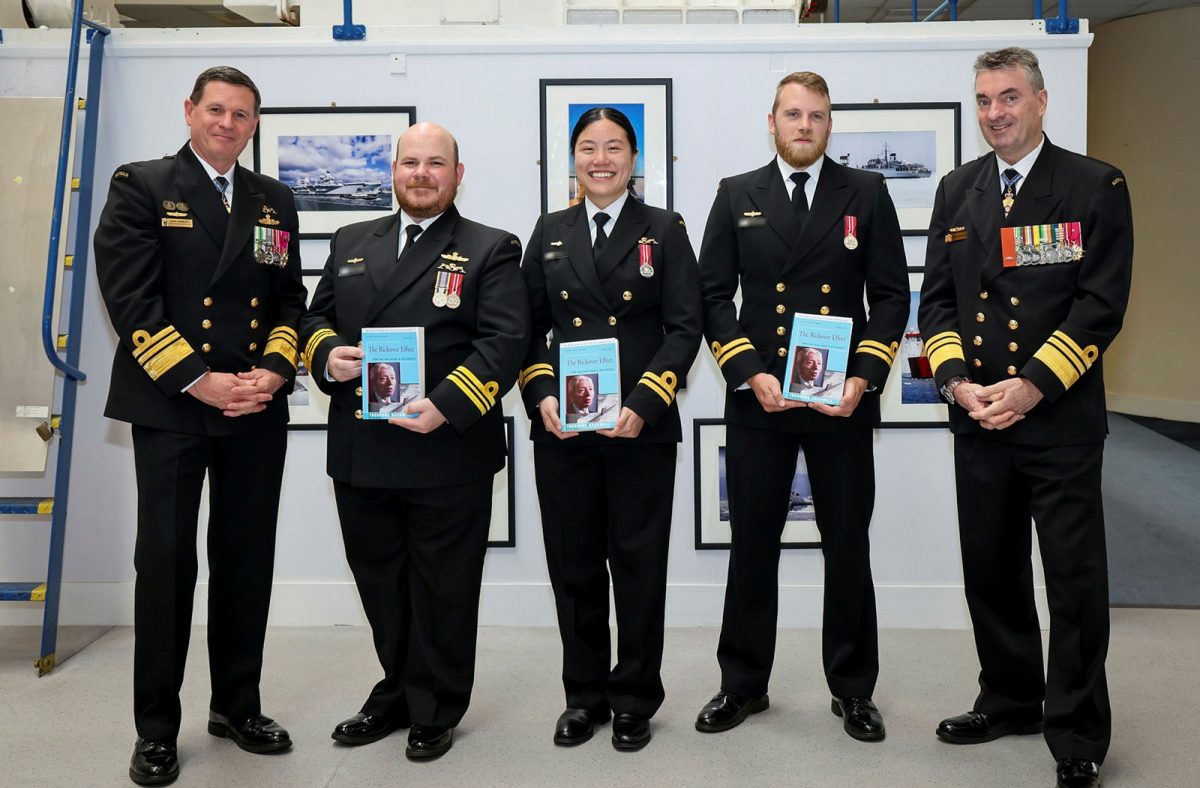
(From left) Chief of Navy VADM Mark Hammond, Lieutenant Commander ”James”, course dux Lieutenant ”Isabella”, Lieutenant ”Stephen”, and VADM Jonathan Mead.
Their qualifications will enable the officers to undertake their general submarine qualification and complete their engineer officer of watch training, while also learning the fundamentals of operating nuclear-powered submarines.
This builds upon the program already underway for ADF and Australian defence industry personnel to gain education, experience and training in both UK and US shipyards, facilities and fleet vessels.
Vice Admiral Mead said the training was a critical step towards Australia operating and maintaining a sovereign fleet of nuclear-powered submarines from the early 2030s.
“The incredible training opportunities we are accessing through our AUKUS partners will ensure we can safely operate and maintain our sovereign fleet of nuclear-powered submarines,” he said.
“We are grateful for the solid support of the United Kingdom and the United States along with their enduring commitment to help Australia build a highly skilled and capable submarine workforce.”
While these milestones are key to the success of the RAN’s ambitious nuclear-powered submarine program, if these officers continue to be drawn from the current Collins-class submarines’ or other vessels’ ranks, it remains to be seen whether the six Collins-class boats or other ship classes can be adequately crewed during a period when the ADF’s recruitment program is failing to meet its targets.


